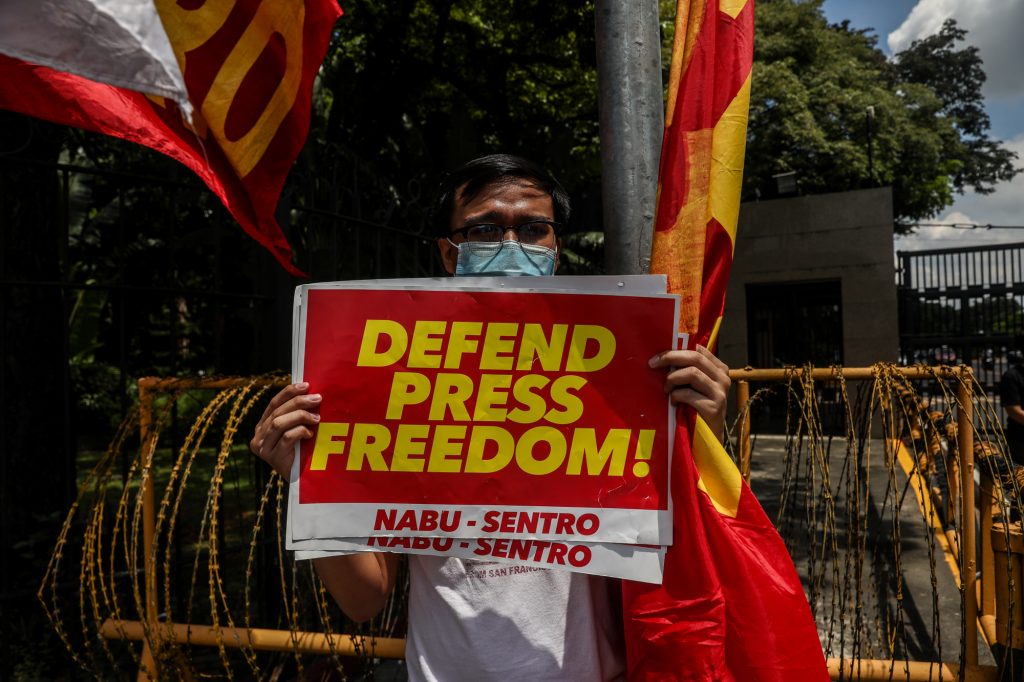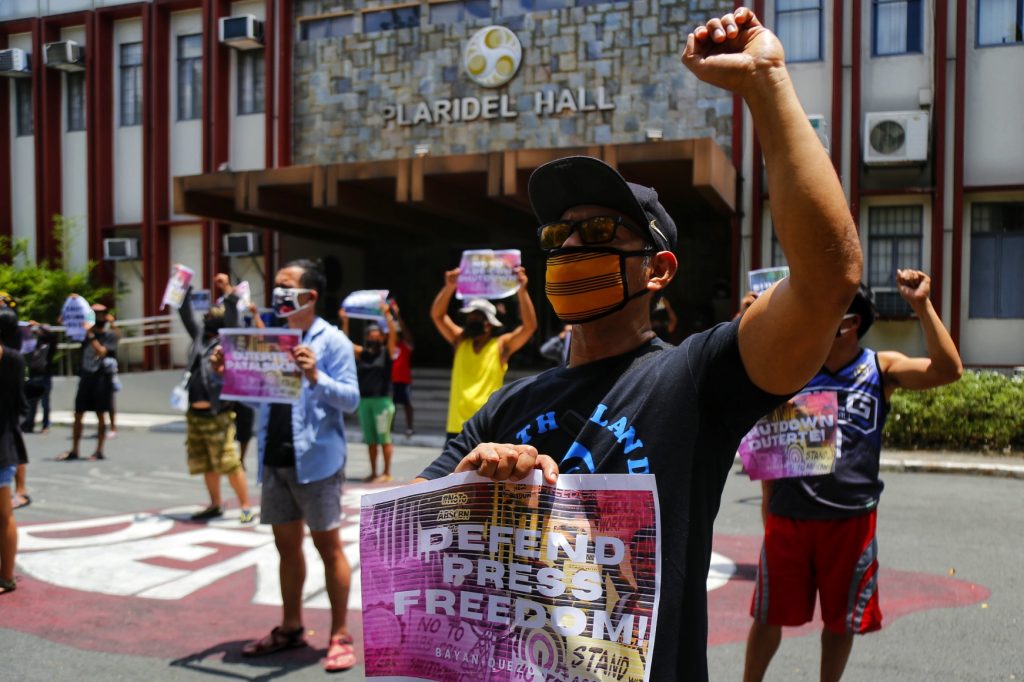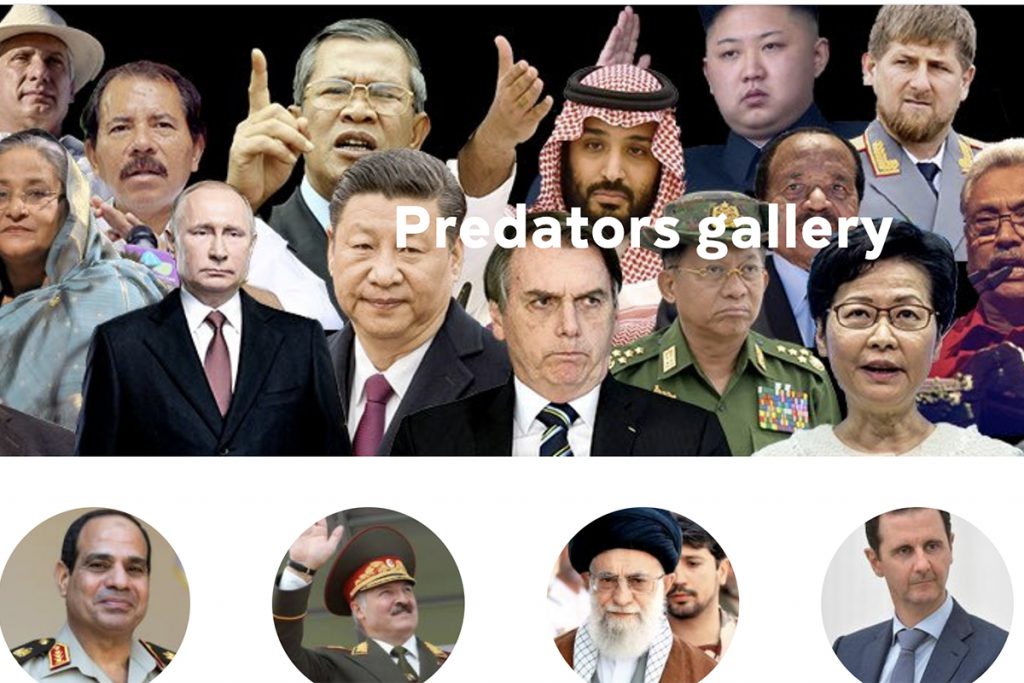
Several Asian leaders landed on a “predators of press freedom” gallery published by media watchdog Reporters Without Borders (RSF) this week.
The “gallery” included 37 heads of state or government who were behind attacks on press freedom in recent years. More than a third, or 13, of the “tyrants” come from the Asia-Pacific region.
The “predators” reportedly trampled on press freedom through censorship, by jailing journalists or by inciting violence against media workers.
Nearly half, or 17, of the “predators” are making their first appearance on the 2021 list, which RSF is publishing five years after the last one, from 2016.
Among those in the list is Carrie Lam, chief executive of the Hong Kong Special Administrative Region since 2017.
RSF tagged Lam as a “puppet of Chinese President Xi Jinping … (who) openly supports his predatory policies towards the media,” including the closure of Hong Kong newspaper Apple Daily.
Sheikh Hasina, Bangladesh’s prime minister since 2009, is also included in the gallery for adopting a digital security law in 2018 that has led to more than 70 journalists and bloggers being prosecuted.
For waging a “total war against independent media,” Philippine President Rodrigo Duterte is also named a “press freedom predator.”
According to RSF, Duterte wields his executive power to bend the Philippine legal and justice system. “Judges who don’t toe the line are pushed aside,” it said.
“Congress tamely endorses all the president’s decisions. Backed by most of the private sector, Duterte easily imposes his line on media outlets owned by businessmen that support him,” read the RSF report.
It said that with the government “colluding… at all levels” to accommodate him, Duterte has “an arsenal that he can use to wage ‘total war’ against journalists.”

“Each of these predators has their own style. Some impose a reign of terror by issuing irrational and paranoid orders,” said RSF secretary general Christophe Deloire.
“Others adopt a carefully constructed strategy based on draconian laws,” he added.
“A major challenge now is for these predators to pay the highest possible price for their oppressive behavior. We must not let their methods become the new normal,” said Deloire.
Philippine presidential spokesperson Harry Roque, however, said the tag on Duterte is “absolutely bereft of merit,” adding that the president had not jailed or filed a libel case against any journalist.
RSF has included the Philippines among the “black” countries where the media situation is “very bad.”
Nineteen of the “predators” rule countries that are colored red on RSF’s press freedom map, meaning their situation is classified as “bad” for journalism while 16 rule countries that are colored black.
The most notable of the list’s new entrants is Saudi Arabia’s 35-year-old crown prince, Mohammed bin Salman.
The report said the king’s “repressive methods” include spying and threats that have sometimes led to abduction, torture and “other unthinkable acts.”

Other new entrants also include Brazilian President Jair Bolsonaro, “whose aggressive and crude rhetoric about the media has reached new heights since the start of the pandemic.”
Hungary’s Viktor Orbán, the self-proclaimed champion of “illiberal democracy,” has “steadily and effectively undermined media pluralism and independence.”
The other “predators” on the list are Syria’s President Bashar al-Assad, Iran’s Ali Khamenei, Russia’s Vladimir Putin, and Belarus’s Alexander Lukashenko.
For each of the predators, RSF has compiled a file identifying their “predatory method,” how they censor and persecute journalists, and their “favorite targets” –- the kinds of journalists and media outlets they go after.
The file also includes quotations from speeches or interviews in which they “justify” their predatory behavior, and their country’s ranking in the World Press Freedom Index.
RSF published a list of Digital Press Freedom Predators in 2020 and plans to publish a list of non-state predators before the end of 2021.
Source: Licas Philippines
0 Comments